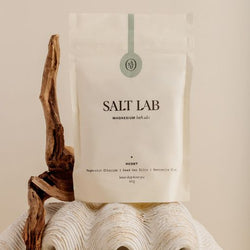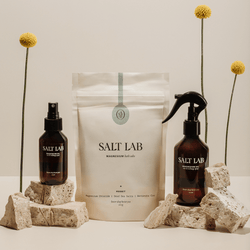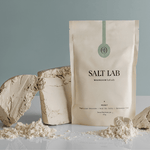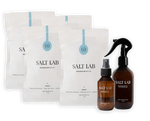Magnesium is an essential mineral that plays a crucial role in numerous bodily functions, from muscle and nerve function to bone health and energy production. One of the most significant, yet often overlooked, benefits of magnesium is its impact on blood sugar regulation. Maintaining stable blood sugar levels is vital for overall health, particularly for those with diabetes or at risk of developing it. Let’s delve into how magnesium influences blood sugar control, its benefits, and practical tips to ensure adequate magnesium intake.
Magnesium’s Role in Blood Sugar Regulation
Magnesium is a key player in the body’s ability to manage blood sugar levels. It assists in the regulation of insulin, the hormone responsible for controlling blood glucose. Here are a few ways magnesium impacts blood sugar:
- Enhancing Insulin Sensitivity: Insulin sensitivity refers to how responsive the body's cells are to insulin. Higher sensitivity means that cells can better use available glucose, reducing blood sugar levels. Magnesium helps improve insulin receptor function, making cells more receptive to insulin. This is crucial for preventing insulin resistance, a condition where cells do not respond well to insulin, leading to elevated blood sugar levels and eventually type 2 diabetes.
- Facilitating Glucose Metabolism: Magnesium is involved in the enzymatic processes that help convert glucose into energy. Without sufficient magnesium, this conversion is inefficient, leading to higher blood sugar levels.
- Influencing Glycogen Storage: Glycogen is a stored form of glucose in the liver and muscles. Magnesium helps regulate the storage and release of glycogen, ensuring that glucose is available when needed and stored when in excess, helping maintain balanced blood sugar levels.
- Reduces Inflammation: Chronic inflammation can impair insulin sensitivity and contribute to elevated blood sugar levels. Magnesium helps reduce inflammation in the body, which can improve insulin function and lower blood sugar.
-
Balances Stress Levels: Stress can significantly impact blood sugar regulation. Magnesium helps calm the nervous system and reduce stress, which can mitigate its effects on blood sugar levels.
Magnesium and Type 2 Diabetes
The connection between magnesium and type 2 diabetes is well-documented. Studies have shown that people with higher magnesium intake have a lower risk of developing type 2 diabetes. This can be attributed to magnesium’s role in enhancing insulin sensitivity and aiding glucose metabolism. Furthermore, individuals with diabetes often have lower magnesium levels, which can exacerbate blood sugar control issues.
Key Research Findings
- Risk Reduction: A comprehensive review in The Journal of Nutrition found that higher dietary magnesium was associated with a reduced risk of type 2 diabetes. The review concluded that increasing magnesium intake could be a potential strategy for diabetes prevention (Morrison et al., 2017).
- Improved Glycemic Control: A study published in Diabetes, Obesity and Metabolism found that magnesium supplementation significantly improved glycemic control in individuals with type 2 diabetes. The study reported reductions in fasting blood glucose and HbA1c levels, indicating better long-term blood sugar management (Cuciureanu et al., 2012).
Symptoms of Magnesium Deficiency
Given magnesium’s critical role in blood sugar regulation, it’s important to recognise the signs of deficiency. Symptoms of low magnesium levels can include:
- Muscle cramps and spasms
- Fatigue and weakness
- Irregular heartbeat
- Numbness and tingling
- Mood changes and irritability
Sources of Magnesium
Ensuring adequate magnesium intake is essential for maintaining optimal blood sugar levels. Magnesium can be obtained from various dietary sources, including:
- Leafy Green Vegetables: Spinach, kale, and Swiss chard are excellent sources of magnesium.
- Nuts and Seeds: Almonds, cashews, pumpkin seeds, and sunflower seeds are rich in magnesium.
- Whole Grains: Brown rice, quinoa, and whole wheat products provide a good amount of magnesium.
- Legumes: Black beans, chickpeas, and lentils are packed with magnesium.
- Fish: Salmon and mackerel are not only high in omega-3 fatty acids but also in magnesium.
- Dark Chocolate: A tasty way to boost magnesium intake, dark chocolate is surprisingly rich in this vital mineral.
Magnesium Supplements
While it’s best to get nutrients from food, magnesium supplements can be beneficial, especially for those who struggle to get enough from their diet alone. Here are some points to consider:
Memory updated
Magnesium Supplements: How Salt Lab Can Support Your Health
While it’s ideal to get your nutrients from food, sometimes it’s challenging to meet all your magnesium needs through diet alone. That’s where magnesium supplements come into play. Magnesium supplements can be an effective way to ensure you're getting enough of this essential mineral, especially for those who have specific health concerns or busy lifestyles. Let’s explore how Salt Lab’s magnesium products can fit into your daily routine and help you achieve better blood sugar control and overall wellness.
At Salt Lab, we’re dedicated to providing high-quality, effective magnesium products designed to meet your health needs. Here’s how our offerings can help:
- Magnesium Oil Sprays: Our magnesium oil sprays are an excellent choice for those who prefer a topical application. Magnesium oil is easily absorbed through the skin and can be applied directly to areas of discomfort or used as a daily supplement. It’s a convenient way to incorporate magnesium into your routine, especially if you experience digestive issues with oral supplements.
- Magnesium Bath Salts: Perfect for a relaxing bath, our magnesium bath salts offer a soothing way to boost magnesium levels. When dissolved in warm water, these salts are absorbed through the skin, helping to relax muscles and promote overall well-being. It’s a luxurious way to unwind after a long day while supporting your magnesium intake.
Practical Tips for Using Magnesium Supplements
- Consistency is Key: Whether you choose our magnesium oil, bath salts, or lotion, regular use is essential for maintaining optimal magnesium levels. Incorporate these products into your daily routine to reap the full benefits.
- Dosage and Usage: Follow the recommended dosage instructions on the product label. For topical products, apply as directed, typically 1-2 times daily. For bath salts, add a generous amount to your bath and soak for at least 20 minutes.
- Combine with a Balanced Diet: While supplements can help, they’re most effective when combined with a balanced diet rich in magnesium-containing foods. Enhance your intake by including leafy greens, nuts, seeds, and whole grains in your diet.
Magnesium is a vital mineral that plays a significant role in blood sugar regulation, insulin sensitivity, and overall metabolic health. Ensuring adequate magnesium intake through a balanced diet or supplements can help maintain stable blood sugar levels and reduce the risk of type 2 diabetes. By incorporating magnesium into your daily routine, you can harness the benefits of this essential nutrient for better blood sugar control and overall well-being.
Disclaimer: While we at Salt Lab are passionate about natural health solutions, it's important to note that the information provided in this email is for educational purposes only. It is not intended as a substitute for professional medical advice, diagnosis, or treatment. Always seek the advice of your physician or other qualified health provider with any questions you may have regarding a medical condition.
















